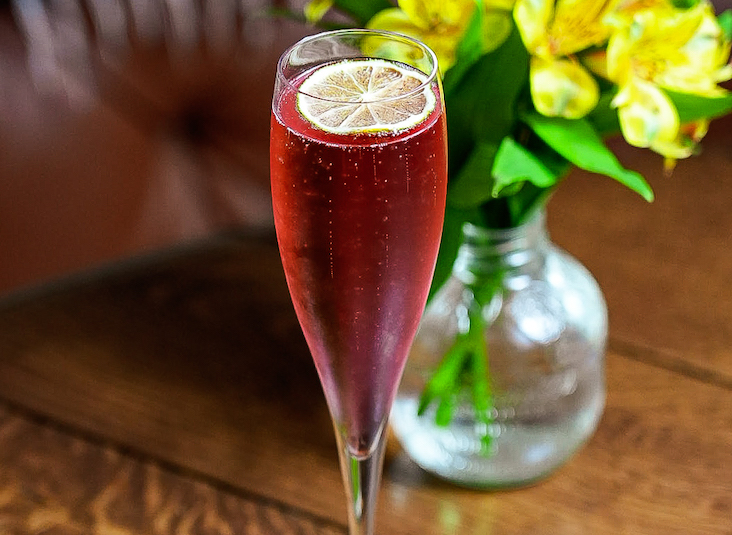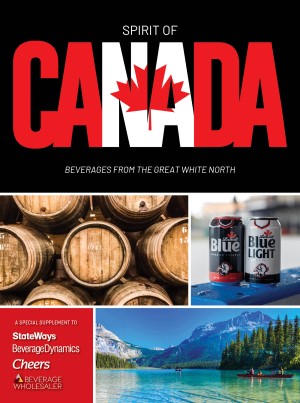Let’s say you have a small or medium-sized restaurant. You can handle wine and beer service fairly easily, since all you need are refrigeration, corkscrews, bottle openers and waiters.
But your cocktail program is lacking—or nonexistent. Knowing how hot craft cocktails are today, you want to be able to offer them, but you only have enough space for a small service bar.
What’s more, you don’t have the need—or the funds—to hire a full-time, mixologist-type bartender. You also don’t have the room to store all of the spirits, liqueurs and bitters bottles required for a top-notch cocktail program.
What can you do? Relax. Deep breaths. Here are a few suggestions.
1. Batching
You might not have a full-time bartender, but some of your staff members may have some experience behind the bar. Even if you’re relying on prep cooks, you can still produce fresh cocktails in volume by using the batching process.
That’s right: Make large batches of classic or original cocktails, then store them in bottles for service. All servers have to do then is pour the cocktail into the appropriate glassware, with or without ice.
If the cocktail is going to be served straight up and would usually be stirred, such as a Martini, or shaken like a Whiskey Sour, you have to add some water into the batch to make up for what would be in a cocktail because of melted ice. The amount water to add can range from 5% to 25% of the total volume.
One trick to determine how much to add is to weigh one recipe-worth of the cocktail (gram scales work best), and then shake or stir it as intended. Strain it and measure again. This will give you the correct percentage of water to add to the batch.
The other way to check for the right amount of water is by taste, which is less accurate but easier. You can batch without dilution if you plan to shake or stir cocktails to chill them individually for service.
2. Cocktail Bases
It can’t get much easier than this (well, it can, but we’ll get to that in the next section), because some companies are producing complex and high-quality cocktail bases and syrups. These typically require nothing more than the addition of a base spirit and sometimes soda water.
The great thing about cocktail bases is that you can add variations with a few more ingredients, including fresh juice or other modifiers. They work perfectly well as intended, just two ingredients stirred together with ice.
Several new companies have created great recipes with unique ingredients that lead to truly complex and delicious cocktails. The Jack Rudy Cocktail Co. offers a number of complex syrups, including tonic that can be the base of a great cocktail. A company called Bittermilk in North Charleston, NC, has taken this one step further by creating complete cocktails in a bottle, lacking only the base spirit.
Both companies’ products are flexible beyond their proposed use, and can give you a full cocktail list by using just a few bottles.
3. Bottled Cocktails
Okay, you don’t have room for a bar, and barely extra space in the low-boy that keeps wine and beer cold. Well then, make a little extra room for some bottled cocktails and see how they sell. Most are meant to be served over ice, but some can be served straight from the bottle in a Martini glass.
If your guests are interested in the more intense, whiskey-based types of tipples, consider the Fluid Dynamic barrel-aged cocktails from Craft Distillers. The Ukiah, CA-based company’s classic cocktails, made from craft-method spirits, blended and aged in the Germain-Robin brandy cellars, will make guests think that you have a waxed-moustached hipster mixologist.
For lighter, more refreshing libations, the bottled options from Chicago’s Crafthouse Cocktails will fit the bill. Developed by bartender Charles Joly, formerly of The Aviary, options include a Moscow Mule, a Paloma and a Southside.
Some larger players are getting into the game as well. Spirits giant Diageo in October launched its Studebaker bottled whisky cocktails, which include an Old Fashioned and a Manhattan.
It is possible to offer specialtycocktails now without a huge bar or an on-staff mixologist by batching some signature drinks, relying on flavorful new mixers or even tapping into some of the bottled cocktail options. These are great strategies for a new or smaller operator looking to start or enhance a cocktail program.
John Fischer is a professor at the Culinary Institute of America in Hyde Park, NY, and a former wine director at several New York restaurants.







